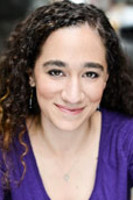Ada Lovelace Day is an annual celebration of women in STEM fields. The tradition began in 2009, and, this year, CFAR staff are sharing stories about some of the women in science and technology that they most admire.
Our President, Julia Galef, chose Sophie Germain, a 18th-century mathematician who had to use a lot of trickery and guile to continue her studies given society's prejudice against female mathematicians, and her family's opposition. She was close friends with Gauss and Lagrange (and helped protect Gauss during the war) but hid her identity under the pseudonym of a male student who had dropped out of school. You can read more about her in this excerpt from Simon Singh's Fermat's Enigma.
Nisan Stiennon studied Dusa McDuff's work on algebraic topology in college. He also sent along the link to her speech accepting the Slatter prize, in which she reflects on her life in mathematics:
When I came back to Cambridge, I went to Frank Adams’s topology lectures, read the classics of algebraic topology, and had a baby. At the time, almost all the colleges in Cambridge were for men only, and there was no provision at all for married students. I was very isolated, with no-one to talk to, and found that after so much reading I had no idea how to begin to do research again. After my post-doc, I got a job at York University. I was the family breadwinner and housekeeper and diaper changer (my husband said that diapers were too geometric for him to manage). At about this time I started working with Graeme Segal, and essentially wrote a second Ph. D. with him. As this was nearing completion, I received an invitation to spend a year at M.I.T. to fill a visiting slot which they had reserved for a woman. This was a turning point. While there I realised how far away I was from being the mathematician I felt that I could be, but also realised that I could do something about it. For the first time, I met some other women whom I could relate to and who also were trying to become mathematicians. I became much less passive: I applied to the Institute for Advanced Study and got in, and even had a mathematical idea again, which grew into a joint paper with Segal on the group-completion theorem.
Kenzi Amodei chose Carol Dweck, who is best known for her work on growth mindset versus fixed mindset. CFAR's classes are depend on and support growth mindset approaches. Instead of saying something like, "I'm bad at making sense of new data" we'd reframe to say "I'm not good at making sense of new information, right now" and then start getting curious about what could change that statement in the future. (Perhaps our Bayes class?). She also wanted to particularly praise two of her college chemistry teachers: Zelda Zeigler and Carol Higgenbotham, who taught her to love chemistry fiercely, as helped her understand it.
Dan Keys admires Ziva Kunda's research on motivated reasoning. Her elegantly designed research helped shape his academic interests in graduate school. After her death in 2004, her paper "The Case for Motivated Reasoning," received the Scientific Impact Award from the Society of Experimental Social Psychology.
And I'm picking a study, not a person, just because I like it so much, and because it seems directly relevant to the story of Dusa McDuff being offered a position reserved for a woman.
In India, the government is subject to a fascinating natural experiment. Some provincial villages are randomly assigned to be governed by women (i.e. only women can run for the open seat). In other provinces, anyone can enter the race. In a paper in the National Bureau of Economic Research, "Powerful Women: Does Exposure Reduce Bias?", the researchers found that exposure to women leaders shifted some stereotypes:
We exploit random assignment of gender quotas across Indian village councils to investigate whether having a female chief councillor affects public opinion towards female leaders. Villagers who have never been required to have a female leader prefer male leaders and perceive hypothetical female leaders as less effective than their male counterparts, when stated performance is identical. Exposure to a female leader does not alter villagers' taste preference for male leaders. However, it weakens stereotypes about gender roles in the public and domestic spheres and eliminates the negative bias in how female leaders' effectiveness is perceived among male villagers. Female villagers exhibit less prior bias, but are also less likely to know about or participate in local politics; as a result, their attitudes are largely unaffected. Consistent with our experimental findings, villagers rate their women leaders as less effective when exposed to them for the first, but not second, time. These changes in attitude are electorally meaningful: after 10 years of the quota policy, women are more likely to stand for and win free seats in villages that have been continuously required to have a female chief councillor.
Who are some of your favorite women in science and math?


